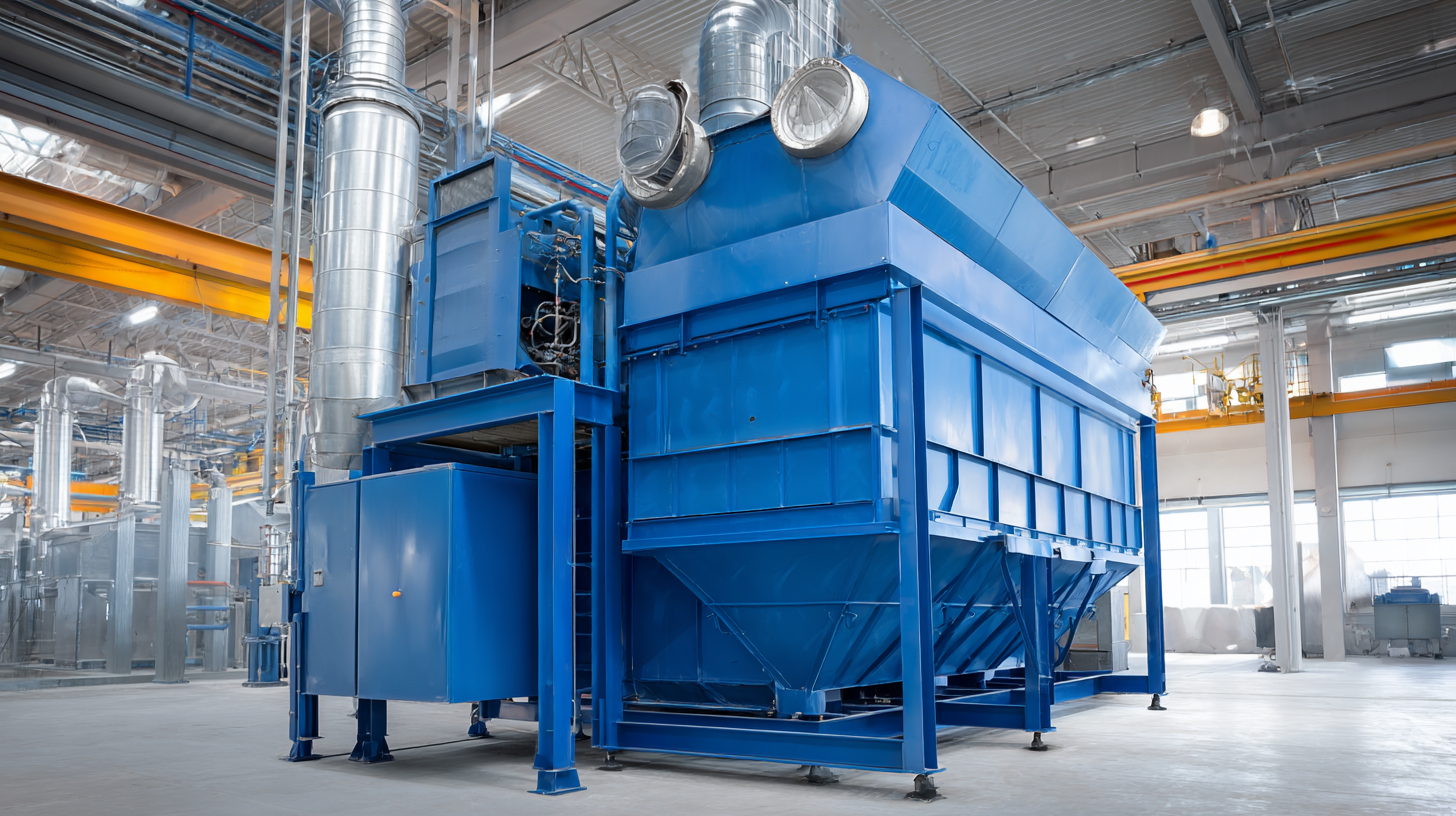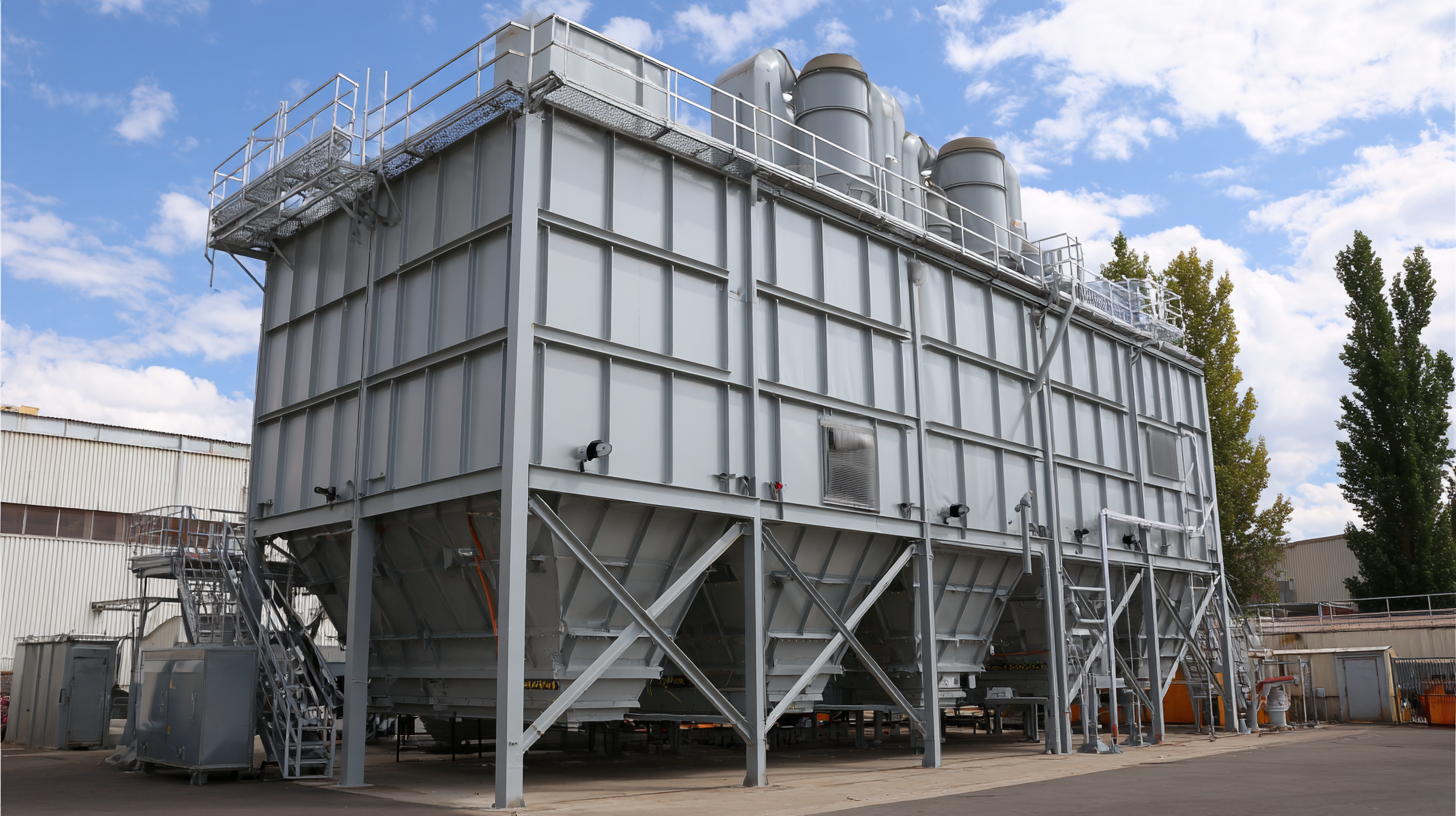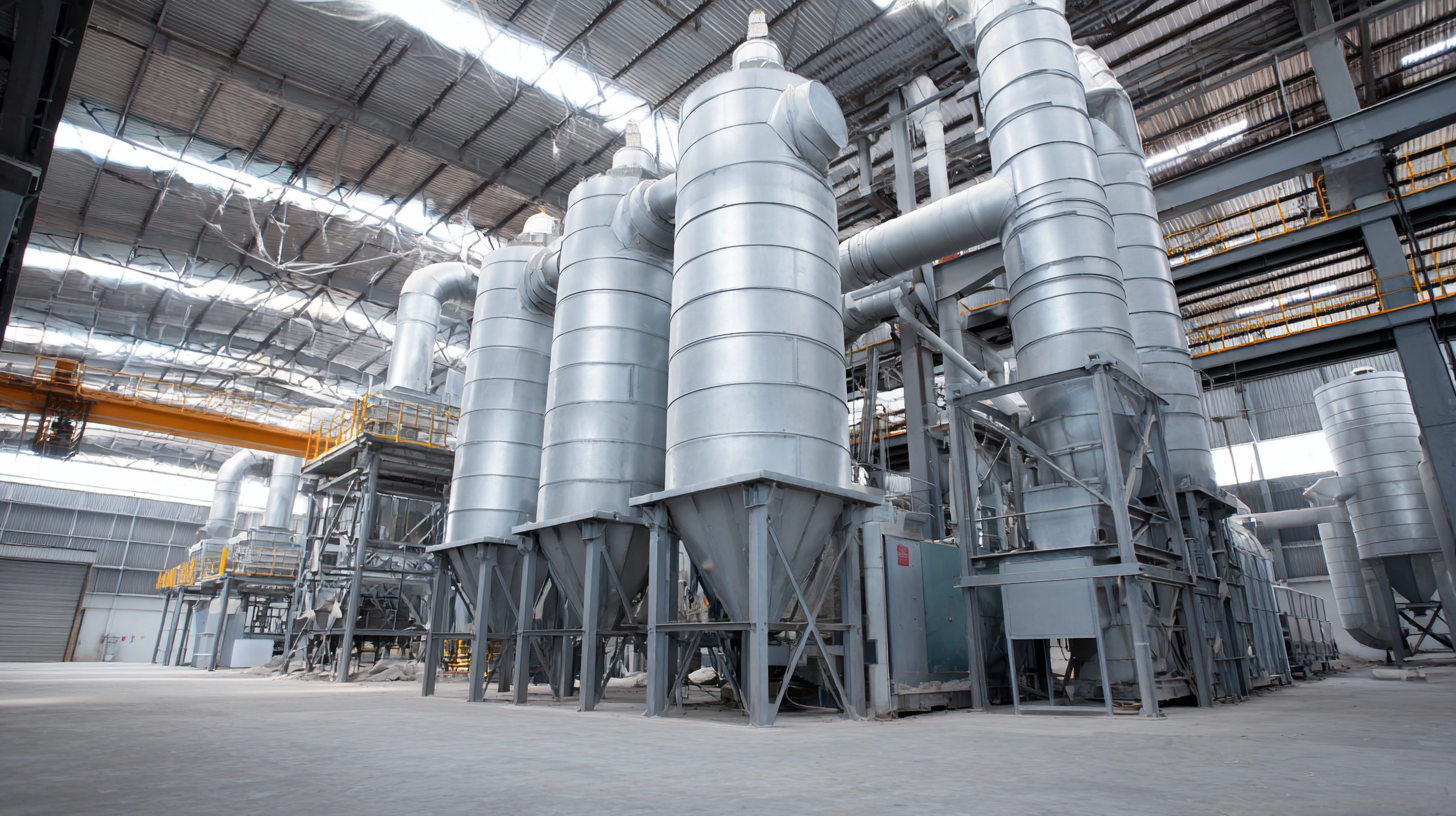Ultimate Checklist for Choosing the Best Dust Collector Filter for Your Business Needs
In today’s manufacturing landscape, the significance of a high-quality Dust Collector Filter cannot be overstated. According to a report by the U.S. Environmental Protection Agency, industrial dust generation can lead to respiratory problems, decreased productivity, and costly equipment damage. Proper dust management is essential, with an estimated 30% of factories facing challenges related to airborne particulate matter. Choosing the right dust collector filter plays a crucial role in ensuring compliance with environmental regulations, safeguarding worker health, and maintaining operational efficiency. As factories in China continue to strengthen their global presence through exports, understanding the specifications and efficiency ratings of dust collector filters is vital for businesses aiming to enhance their competitive edge. This ultimate checklist will guide you in evaluating and selecting the best dust collector filter tailored to your specific business needs, ensuring that you harness the full potential of your manufacturing capabilities while prioritizing safety and sustainability.

Factors to Consider When Selecting Dust Collector Filters for Industrial Applications
When selecting the best dust collector filters for industrial applications, several key factors must be considered to ensure optimal performance and compliance with regulatory standards. The U.S. air filter market is projected to expand significantly, with estimates suggesting growth from $8.27 billion in 2025 to approximately $11.96 billion by 2032, reflecting a compound annual growth rate (CAGR) of 5.4%. This growth underscores the increasing demand for efficient filtration solutions in various industries.
Choosing the right filter type—whether it be cartridge filters, HEPA filters, or baghouse filters—depends on the specific dust types and operational requirements. For instance, studies have highlighted that the design of dust collector systems, such as the pulse cleaning mechanism of single-filter cartridge systems, can greatly influence filtration efficiency. Moreover, innovations like air curtain dust-collecting technology have been proven effective in managing dust exposure in hard-to-seal environments, showcasing the need for businesses to adopt advanced solutions to meet rising air quality demands and stringent regulations in industrial applications.
Key Performance Metrics That Influence Dust Collector Filter Efficiency
When selecting a dust collector filter, understanding key performance metrics is crucial to ensuring optimal efficiency for your business. One of the primary metrics to consider is the filter's particle capture efficiency, which directly affects how well it can remove harmful dust and particles from the air. A higher efficiency rating means a greater ability to protect the health of your employees and improve air quality, making it a vital factor in your decision-making process.
 Another important metric is the filter's airflow resistance. A balance must be struck between high filtration efficiency and minimal airflow restriction to maintain system performance. Excessive resistance can lead to energy inefficiencies and higher operational costs. Evaluating the speed of airflow and how the filter responds can ensure that your dust collection system functions effectively without sacrificing performance.
Another important metric is the filter's airflow resistance. A balance must be struck between high filtration efficiency and minimal airflow restriction to maintain system performance. Excessive resistance can lead to energy inefficiencies and higher operational costs. Evaluating the speed of airflow and how the filter responds can ensure that your dust collection system functions effectively without sacrificing performance.
Additionally, consider the filter's dust holding capacity. A filter with high dust holding capacity requires less frequent maintenance and replacement, which can significantly impact long-term operational costs. By carefully analyzing these performance metrics, you can choose the best dust collector filter that meets your business needs while ensuring a safe and productive working environment.
Comparative Analysis of Filter Types: HEPA, Electrostatic, and Cartridge Filters
When evaluating dust collector filter types for your business, it’s essential to compare HEPA, electrostatic, and cartridge filters to determine which best suits your needs. HEPA filters are renowned for removing up to 99.97% of particles as small as 0.3 microns, making them ideal for environments requiring strict air quality standards. The global HVAC filters market, valued at USD 3.5 billion in 2021 and expected to reach USD 4.5 billion by 2026, illustrates the growing importance of effective air filtration solutions.
In contrast, electrostatic filters utilize an electric charge to capture airborne particles, offering a reusable option that can help reduce waste. They are particularly effective in industrial settings where larger particles and debris are common. On the other hand, cartridge filters are versatile and efficient for various applications, making them a popular choice among manufacturers. As the industrial dust collector market continues to expand, it's projected to reach significant milestones, which emphasizes the need for businesses to invest in the right filtration technology.
Tip 1: Before making a decision, assess the specific particulate matter present in your environment to match with the filter’s efficiency.
Tip 2: Consider maintenance and replacement costs; some filters may require more frequent changes, impacting overall operational expenses.
Tip 3: Keep abreast of industry trends and regulatory changes that may influence air quality standards related to your business operations.
Understanding Industry Standards: Compliance and Regulatory Requirements for Filters
In choosing the best dust collector filter for your business, understanding compliance and regulatory requirements is paramount. A report by the U.S. Environmental Protection Agency (EPA) reveals that over 7,000 facilities face penalties each year due to non-compliance with air quality regulations. Businesses must ensure their filters meet standards outlined in the National Ambient Air Quality Standards (NAAQS) to avoid costly fines and operational disruptions.
Moreover, adherence to industry-specific standards such as those from the American Society of Mechanical Engineers (ASME) and the Occupational Safety and Health Administration (OSHA) is crucial. For instance, OSHA mandates that employers provide a clean workplace with airborne contaminant levels not exceeding permissible exposure limits (PELs). Research has shown that using filters certified under these standards can reduce airborne particles by nearly 99.9%, significantly enhancing workplace safety and worker productivity. By investing in compliant filters, businesses not only adhere to regulations but also promote a healthier environment for their employees.
Ultimate Checklist for Choosing the Best Dust Collector Filter for Your Business Needs
| Filter Type | Efficiency [%] | Max Airflow [CFM] | Compliance Standards | Maintenance Frequency | Expected Lifespan [years] |
|---|---|---|---|---|---|
| HEPA Filter | 99.97 | 1200 | EPA, OSHA | 6 months | 3-5 |
| Pleated Filter | 85.0 | 1500 | NFPA, ISO | 12 months | 2-4 |
| Baghouse Filter | 95.0 | 2000 | OSHA, EPA | 3-6 months | 4-7 |
| Activated Carbon Filter | 70.0 | 1000 | EPA, OSHA | 6 months | 1-3 |
Cost-Benefit Analysis: Investing in the Right Dust Collector Filters for Long-Term Savings
When evaluating dust collector filters for your business, it's essential to conduct a thorough cost-benefit analysis to ensure you're making a savvy investment. Although initially, high-quality filters may seem pricier, their durability and efficiency can result in substantial savings over time. Premium filters typically require less frequent replacement and can maintain optimal airflow, which minimizes energy consumption and maintenance costs. By opting for these filters, businesses can significantly reduce operational downtime and associated costs.

In addition to direct savings, investing in the right filter can have profound implications for workplace safety and regulatory compliance. High-efficiency filters can capture more particulate matter, improving air quality and reducing health risks for employees. This, in turn, contributes to a more productive work environment and less absenteeism due to work-related health issues. Ultimately, choosing the best dust collector filters is not just about immediate expenditure but understanding the long-term advantages that can bolster both productivity and profitability.
